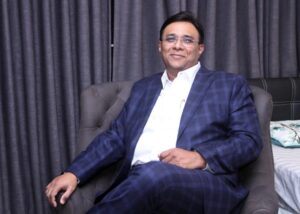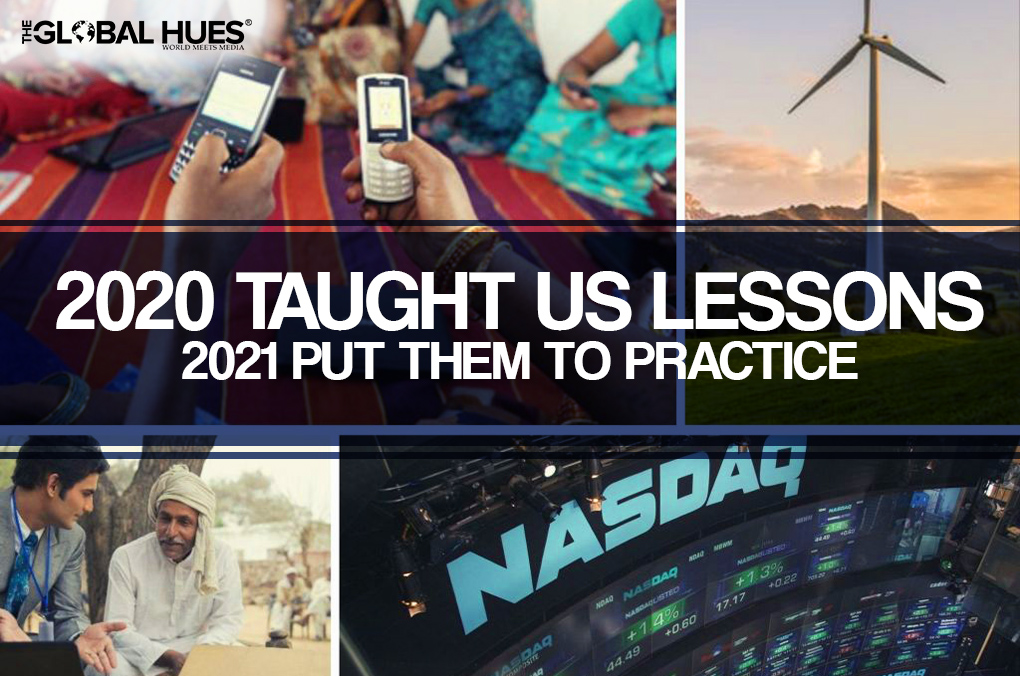We almost thought we had seen the end of the coronavirus, when bam! We were accosted by a new variant that now threatens to derail our well-laid holiday plans. But whether we celebrate the season and the turn of the new year from the confines of our individual homes, or fly out to be with family and friends, we have earned our break! Here’s why – In 2020 we waited, watched and learned. In 2021 we decided life is too short – and decided to go live it.
There was no dearth of action and effort in 2021. India saw a virtual Unicorn stampede with UpGrad, Rebel Foods, Vedantu and more. Freshworks got listed on Nasdaq, while Zomato and Nykaa have become listed companies as well. In fact, Nykaa’s high-decibel listing made founder Falguni Nayar the wealthiest female self-made billionaire in India. There were also failures that taught us lessons, but that’s life. The bottom line is that most of us decided to stop putting things off, because ‘later’ has become increasingly uncertain. Needs and relevance are evolving; the best we can do is act responsibly in the present. So all the giddy activity that 2021 has seen has thrown up some clear hero concepts. Here are four that really stood out.
Digital transformation:
Before the pandemic, we saw the world in silos of black and white. Now we see the same in 1s and 0s. Digital is essential and no work can happen without digital systems and infrastructure. Over the last two years, the corporate world has together scripted the sci-fi story of a lifetime. The culmination of all these months of remote working is a whole new operational model that has identified specific roles that need to work from site and enabled others that can function remotely to do so. At the end of 2021, we now have customised work experiences for frontline workers, shop floor employees and other on-site teams that address their particular needs of efficiency, safety, engagement and more. We also have hybrid or adaptive work models for teams that can quickly pivot to remote working if the pandemic (or any other threat) necessitates it. Hyper-automation, machine learning, data storage & sharing, and cybersecurity have become business imperatives. Again startups in these areas have worked relentlessly to make sure these services become affordable enough for widespread adoption across organisations of any size.
Entrepreneurship:
Talking of entrepreneurship, as of May 2021, India had 6.3 crore MSMEs. The loan disbursals to these MSMEs in FY 21 increased by a whopping 40% compared to FY20. Imagine what that means in terms of increased economic activity, employment generation, taxes for the government, indegenous manufacturing and the resultant benefit to the environment. In September 2021, the government extended the scope of the Emergency Credit Line Guarantee Scheme to MSMEs and extended the deadline to March of next year. If India is to truly become self-reliant, MSMEs are best positioned to take us there. New-age entrepreneurs should especially focus on sustainable solutions, technology, globally implementable solutions and also make the most of the ‘as-a-service’ wave.
Contractual labour:
Connected to the idea of ‘as-a-service’, is the meteoric rise of contractual work. From where we stand today, I am hard-pressed to think of any reasons why companies would not consider sourcing specialised jobs or one-time work to trusted associates. Contractual work, as opposed to full-time jobs, allows talent to pursue multiple projects of their own choice. It also gives access to top talent for companies, without the worry of ‘losing’ their talent to competition. Top performers without the fear of attrition, and without any other commitment, seem like a winning proposition. For these reasons among several more, contractual labour has really picked up steam and will explode in the near future.
Skilling:
This entire upending of the way we work, work environments, global access to talent and other emerging trends also have far-reaching implications on talent. Employees and professionals understand that the skills that have got them thus far need to evolve to make the most of the sea of opportunities that 2021 has thrown up. If people can juggle multiple ‘jobs’ or contracts at one time, then they can also dabble in entirely different roles. To be able to do this, talent is upskilling themselves to be able to explore their own interests and potential to the fullest. This is a scenario where people don’t have to retire to start an organic farm, they can fulfill their dreams while working remotely on contracts. This scenario has also led to the rise of EdTech companies that are offering talent a chance to delve deeper into their areas of expertise, explore new areas of learning and upgrade their knowledge with the latest developments. Aware of this sentiment to upskill, large corporations are tying up with EdTech firms to offer their employees education to deliver on their ambitions while continuing to work.
2021 may almost be behind us, but it taught us lessons that will last us a lifetime. This year has also given us the opportunity to action several of these ambitions, thereby improving our risk-taking abilities. If you ask me, 2022 will be about picking our battles and our opportunities, consolidating our wins and becoming responsible decision-makers. As a novelist and feminist Erica Jong said, “…and the trouble is if you don’t risk anything, you risk even more.”

AUTHOR BIO: Mr. Kaustubh Sonalkar is an experienced professional with over 26 years of mentoring several prestigious enterprises like Welspun, Essar, Future Group, UN, and PWC both in India and overseas for their employment policies. As a thought leader, he has championed several gender equality initiatives with a focus on digital enablement. Mr. Sonalkar recently co-founded a trust called WISE (Woman of India Sustainable Empowerment) that works towards enabling young women and transgender people to make future-focused and sustainable professions across sectors.




